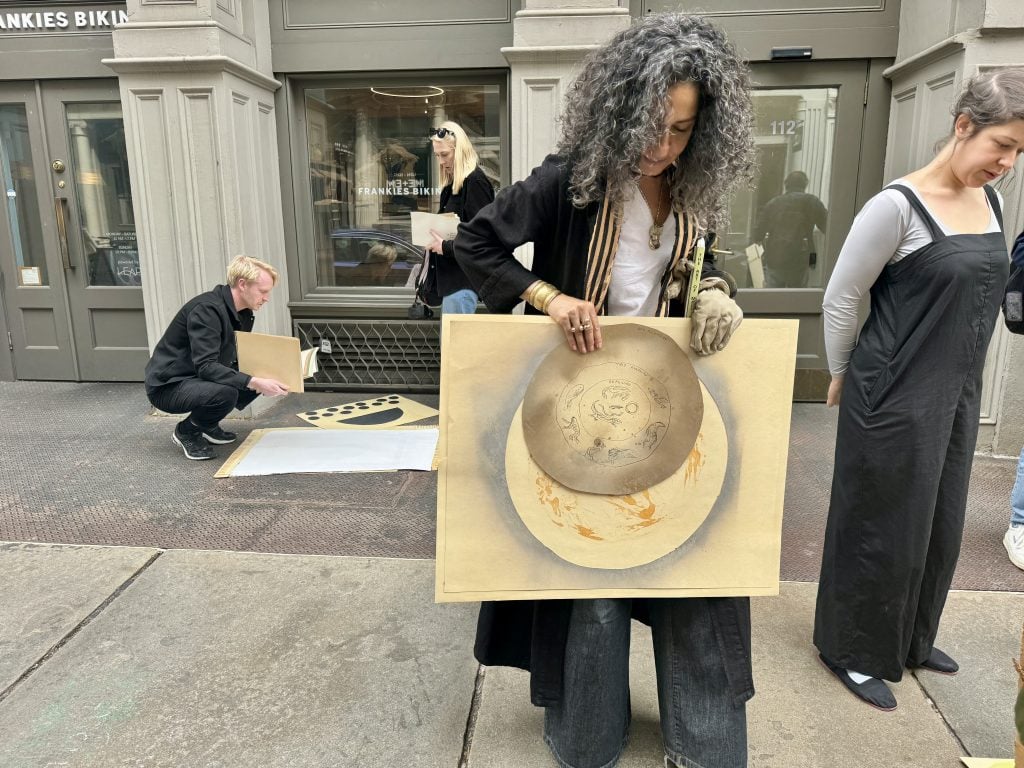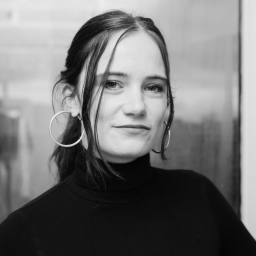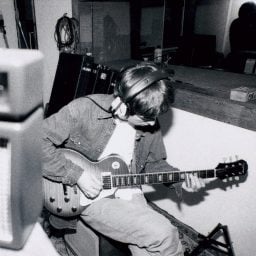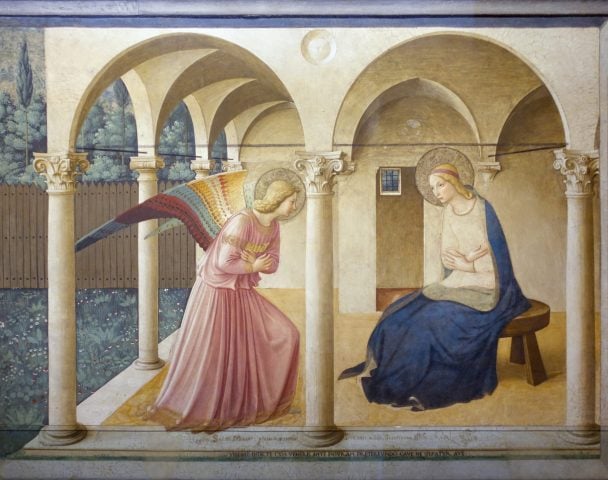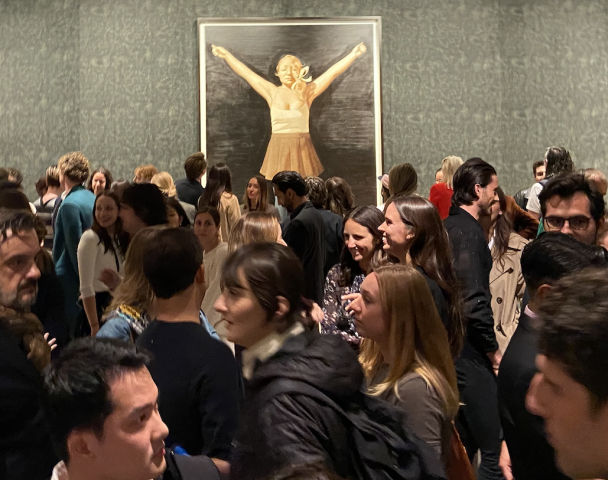This afternoon in Manhattan’s SoHo neighborhood, people walking along Mercer Street were surprised to find a trove of materials that once belonged to the late feminist artist Mary Beth Edelson, all free for the taking.
Outside of Edelson’s old studio at 110 Mercer Street, drawings, prints, and cut-out figures were sitting in cardboard boxes alongside posters from her exhibitions, monographs, and other ephemera. One box included cards that the artist’s children had given her for birthdays and mother’s days. Passersby competed with trash collectors who were loading the items into bags and throwing them into a U-Haul.
“It’s her last show,” joked her son, Nick Edelson, who had arranged for the junk guys to come and pick up what was on the street. He has been living in her former studio since the artist died in 2021 at the age of 88.
Naturally, neighbors speculated that he was clearing out his mother’s belongings in order to sell her old loft. “As you can see, we’re just clearing the basement” is all he would say.
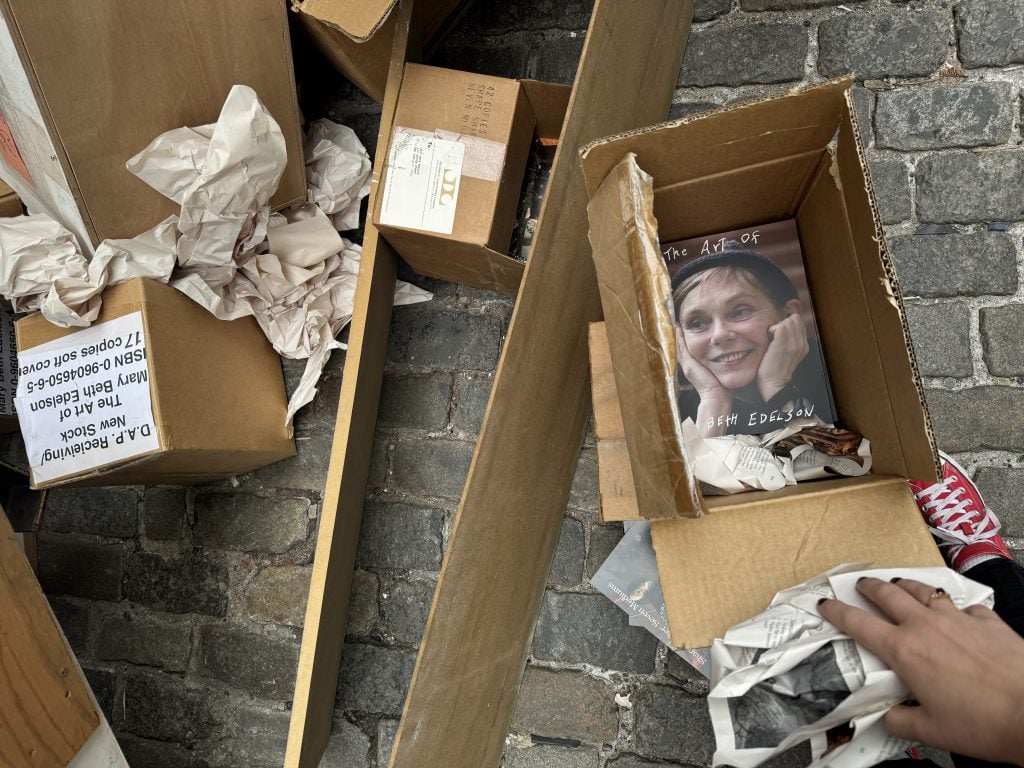
Photo by Annie Armstrong.
Some in the crowd criticized the disposal of the material. Alessandra Pohlmann, an artist who works next door at the Judd Foundation, pulled out a drawing from the scraps that she plans to frame. “It’s deeply disrespectful,” she said. “This should not be happening.” A colleague from the foundation who was rifling through a nearby pile said, “We have to save them. If I had more space, I’d take more.”
Edelson’s estate, which is controlled by her son and represented by New York’s David Lewis Gallery, holds a significant portion of her artwork. “I’m shocked and surprised by the sudden discovery,” Lewis said over the phone. “The gallery has, of course, taken great care to preserve and champion Mary Beth’s legacy for nearly a decade now. We immediately sent a team up there to try to locate the work, but it was gone.”
Sources close to the family said that other artwork remains in storage. Museums such as the Guggenheim, Tate Modern, the Museum of Modern Art, the Brooklyn Museum, and the Whitney currently hold her work in their private collections. New York University’s Fales Library has her papers.
Edelson rose to prominence in the 1970s as one of the early voices in the feminist art movement. She is most known for her collaged works, which reimagine famed tableaux to narrate women’s history. For instance, her piece Some Living American Women Artists (1972) appropriates Leonardo da Vinci’s The Last Supper (1494–98) to include the faces of Faith Ringgold, Agnes Martin, Yoko Ono, and Alice Neel, and others as the apostles; Georgia O’Keeffe’s face covers that of Jesus.
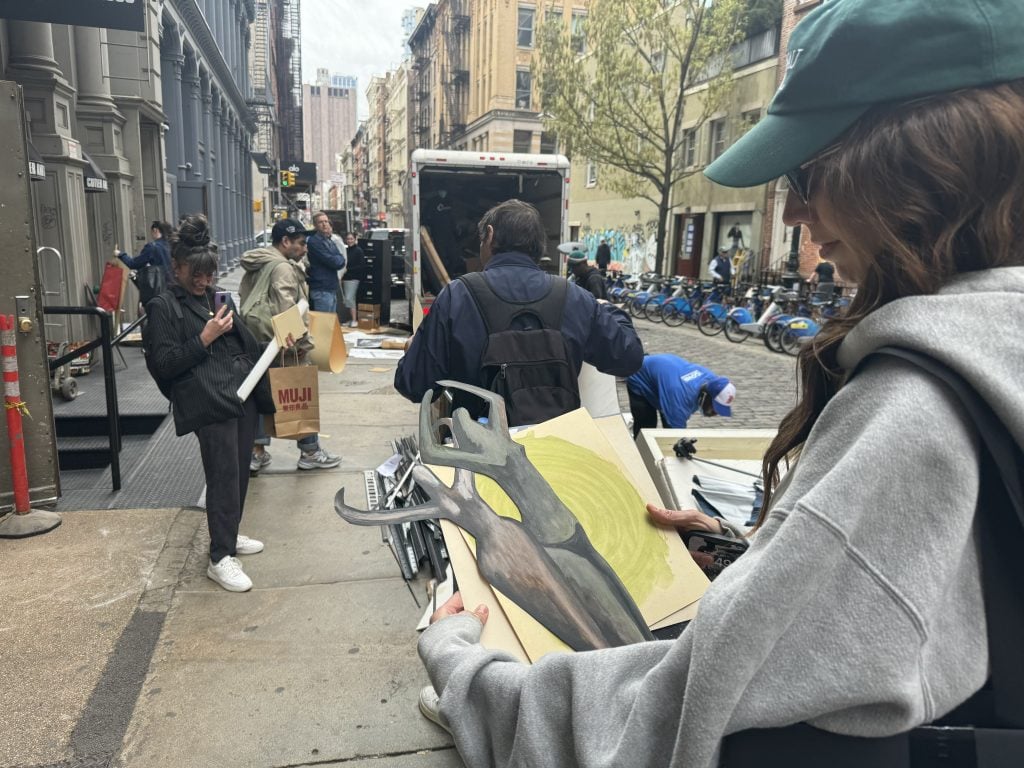
A lucky passerby collecting a couple of figurative cut-outs by Mary Beth Edelson. Photo by Annie Armstrong.
In all, it took about 45 minutes for the pioneering artist’s material to be removed by the trash collectors and those lucky enough to hear about what was happening.
Dealer Jordan Barse, who runs Theta Gallery, biked by and took a poster from Edelson’s 1977 show at A.I.R. gallery, “Memorials to the 9,000,000 Women Burned as Witches in the Christian Era.” Artist Keely Angel picked up handwritten notes, and said, “They smell like mouse poop. I’m glad someone got these before they did,” gesturing to the men pushing papers into trash bags.
A neighbor told one person who picked up some cut-out pieces, “Those could be worth a fortune. Don’t put it on eBay! Look into her work, and you’ll be into it.”
